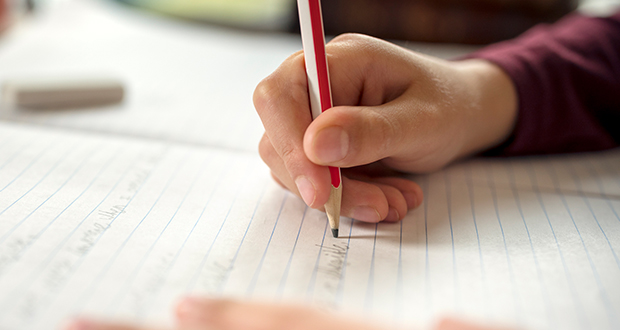The Oxford Australian 2020 Children’s Word of the Year (CWOTY) is ‘virus’, shining a light on how deeply the COVID-19 pandemic, remote learning and school closures have impacted students this year.
To come to this decision, children’s language experts analysed in excess of 50,000 short stories written by three million Australian children for 2020’s Storython writing events. From there, students in primary and junior secondary schools voted on words that were shortlisted, including ‘friends’, ‘virus’, ‘zombies’, ‘lockdown’, ‘fun’, ‘world’, ‘shocked’, ‘school’ and ‘people’, with ‘virus’ winning the vote.
Literacy expert at Flinders University, Anne Bayetto, found that the word ‘virus’ had increased in usage by 15,232.4 per cent compared to 2019. Similarly, the word ‘isolation’ experienced a surge in usage this year, up 10,728 per cent on last year.
“In previous years, students may have occasionally used the word ‘virus’ in science-fiction texts. This year ‘virus’ was clearly top of mind as students were concerned about the immediate and long-term impact,” Bayetto said.
“Perhaps being able to write about the virus was therapeutic, as students were able to voice their concerns through a creative medium.”
The other words that were shortlisted also vividly reflect how the pandemic has impacted Australian children’s lives and experiences in 2020.
“The second-place contender for the CWOTY was ‘friends’. Along with words like ‘school’ and ‘fun’, the analysis showed that while studying from home, children yearned for social connections that are hard to substitute outside of the classroom environment,” Bayetto said.
“Many children cited their desire to spend time with friends and have had to find new and virtual ways to keep in touch with their peers.
“On the other side of the coin, words such as ‘zombies’, ‘lockdown’ and ‘shocked’ showed remarkable popularity this year with students drawing on the challenges that Australia’s young people have faced.”
The literacy expert also highlighted that the word ‘virus’ was a “noticeable departure” from other CWOTY winners in previous years.
“The words selected in the past three years of the CWOTY program have demonstrated a distinctly more positive insight into the language use of children. Words like ‘creativity’ in 2018 and ‘bravery’ in 2019 are a clear contrast to the word ‘virus’ which elicits feelings of concern,” Bayetto said.
“However, this is not the first time we have seen the social conscience of Australian children play out in their CWOTY choice. The word ‘equality’ was chosen in 2017, the same year as the marriage equality plebiscite. Both ‘equality’ and ‘virus’ can be seen as indicative of growing social awareness in school-aged children.”
While the CWOTY initiative is now in its fourth year, this year is the first time it has partnered with Storyathon, the largest online story writing event in the country.
Director of Publishing at Oxford University Press (OUP), Lee Walker, also commented on the conclusions that can be drawn from the CWOTY research.
“It has been truly fascinating to examine the stories over the course of the year and be able to analyse language use at such a pivotal time,” Walker said.
“In our analysis, we noted a surge in students writing about what was happening in the world, namely the pandemic, which ultimately has impacted almost everyone around the world in some way, shape or form.”
Many students chose to write imaginative stories this year for the Storyathon, “perhaps reflecting the therapeutic nature of creative writing with zombies proving a popular word choice”, OUP said. The effects of school closures and lockdowns were also evident in the prevalence of the words ‘friends’ and ‘families’, registering a 204 per cent and 162 per cent increase on last year respectively.
Of course, remote learning has played a significant part in students’ education and lives this year, resulting in a 5,797 per cent increase in the word ‘online’.
Shortlisted words for this year’s CWOTY have been added to the Oxford Australian Children’s language Corpus. These are a collection of texts that record the shifts in children’s linguistics over time and inform further research on children’s language trends by OUP.
Do you have an idea for a story?Email [email protected]
 Education Review The latest in education news
Education Review The latest in education news
